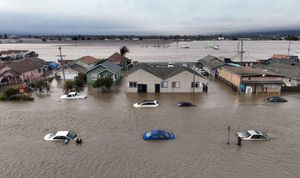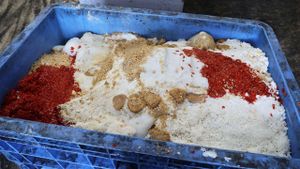Syria's newly appointed interim president, Ahmed al-Sharaa, outlined his administration's ambitious roadmap for the nation's transition during his inaugural address to the public on Thursday. Just one day after taking office, al-Sharaa pledged to create legislative frameworks and initiate a national dialogue addressing Syria's future, marking the beginning of what could be transformative governance following years of civil unrest and war.
Al-Sharaa's address follows the recent upheaval which saw the ousting of former President Bashar al-Assad, paving the way for the establishment of new governance structures. He stated, "I will establish a preparatory committee to select a small-scale legislative council... during the transitional period," emphasizing the need to fill the institutional vacuum left by the previous parliament's dissolution.
Among his plans, al-Sharaa announced the formation of a committee to prepare for a national dialogue conference, which he described as "an open platform for deliberations and consultations" among all segments of Syrian society. He highlighted the conference's purpose: to gather diverse opinions and develop a collective political program suitable for the nation’s future.
“We will announce...a committee charged with preparing the national dialogue conference," al-Sharaa asserted, underlining the government’s commitment to inclusivity and unity as it embarks on this new chapter, aiming to maintain "civil peace" amid Syria's complex sociopolitical fabric.
Following these initiatives, al-Sharaa also indicated plans to issue what he termed as a "constitutional declaration" once preliminary steps are completed. This declaration aims to serve as the legal foundation during the transitional phase, laying groundwork for prospective constitutional reforms and eventual elections.
The road to stability appears long and challenging, as al-Sharaa has noted the transition process could take approximately four years. Analysts are closely watching these developments; Fawaz Gerges, Professor of International Relations at the London School of Economics, commented on al-Sharaa’s potential consolidation of power, raising concerns over the nature of governance moving forward. "My take is...we may see single-party Islamist rule," he warned, reflecting fears of the political direction underlined by al-Sharaa's connections to Hayat Tahrir al-Sham (HTS), the lead faction behind the ousting of Assad.
The international response has been cautiously optimistic, with neighbors extending diplomatic gestures of support. The Qatari Emir, Sheikh Tamim bin Hamad Al-Thani, visited Damascus shortly after al-Sharaa's appointment, emphasizing the urgency of forming a government representative of all segments of Syrian society: "The urgent need to form a government representing all spectrums of Syrian society," the emir stated. This visit marked the first by any head of state since the HTS-led campaign against Assad.
A flurry of diplomatic activity accompanied al-Sharaa's ascension. Congratulations poured from regional powers such as Saudi Arabia and Jordan, indicating their support for the new leadership and the envisioned reconciliation process. King Salman of Saudi Arabia, for one, remarked, "We are pleased to express our congratulations on the occasion of your assumption of the presidency of the Syrian Arab Republic,” reflecting the thawing of relations between Syria and several Arab nations.
Despite the optimism surrounding al-Sharaa's address, substantial challenges remain. The country is still reeling from years of violence and divisions among various groups. Al-Sharaa himself must navigate the delicate balance between asserting control and fostering genuine dialogue and unity.
For Syria, the stakes are high. A successful transition could signal the first steps toward reconstruction and stability, but failure could plunge the nation back to turmoil. With complex ethnic and political landscapes to traverse, Syrian citizens are hopeful yet critically aware of the arduous path ahead.
The upcoming days will reveal how al-Sharaa’s government positions itself against these expectations and whether it can create the inclusive atmosphere necessary to heal wounds and revive national pride.



